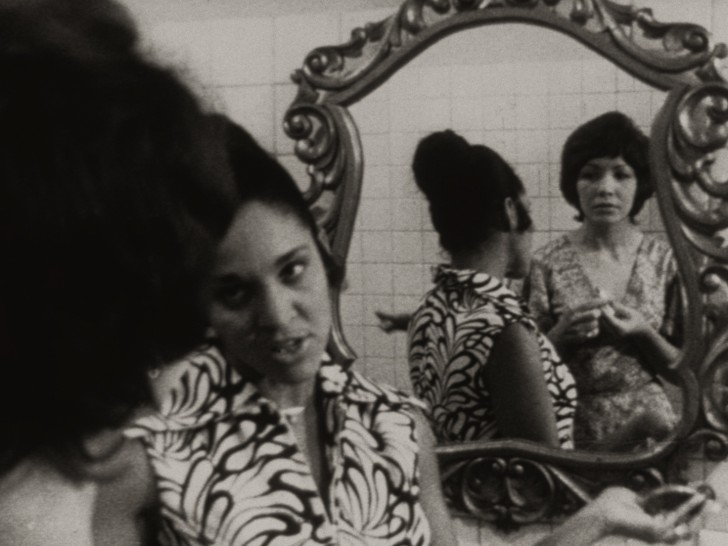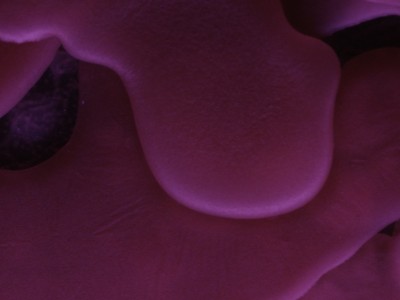
One Way or Another
(De cierta manera)
With Mario Balmaseda, Yolanda Cuéllar, Mario Limonta.
Cuba, 1977, DCP, black & white, 73 min.
Spanish with English subtitles.
DCP source: Janus Films
The first female filmmaker in Cuba, Sara Gómez (1942-1974) was, in her lifetime, also the only female director and one of very few black directors in her country. Growing up in Havana’s Guanabacoa neighborhood, she studied music, literature and Afro-Cuban ethnography. Marginalized Afro-Cuban culture imbued her film work, including her first and only feature, De cierta manera, which she had almost finished editing just before her death at thirty-one.
Dynamic, reflexive and sincere, this revolutionary hybrid—featuring actors, non-actors reenacting and documentary segments—maneuvers freely between multiple narrators, cinematic techniques and points of view in order to illustrate a complex web of relationships—between men and women, fellow workers, students and teachers, children and parents—within the shifting political and socioeconomic framework of post-revolutionary Cuba.
The two main characters, Mario and Yolanda, who come from vastly different backgrounds, set up the film’s central dichotomy. She is a progressive teacher, educated and independent; he is a factory worker who is in ways a traditional man steeped in machismo and patriarchy, but “thinks differently” than his friends, drawn to the freethinking Yolanda and the promises of the collective. Even their individual minds are often pulled in different directions as they navigate the realities within oppressed cultures and all of the vagaries of both the old ways and the new ideals. And the stories may not always add up. The filmmaker even introduces a slight warning before the historical, “factual” sections, keeping her audience alert and on guard. Like the recurrent image of a wrecking ball destroying the old slum housing, De cierta manera blasted the way for a new cinema that dared to break away from oppressive systems in both its radical, un-patriarchal form and its chorus of diverse voices—with the understanding that the path to decolonization and social equality will not be smooth or simple.
Manuela de Laborde has barely left her twenties, yet her singular brand of experimental cinema has already left its mark on the festival circuit, hypnotically rhythmical processes of progressive abstraction rendered in glittering celluloid. From Mexico City, de Laborde studied Art at Edinburgh College of Art and Film and Video at the California Institute of the Arts. As is so often the case in Laborde’s work, it’s hard to determine exactly what we’re seeing in Azúcar y saliva y vapor: a jittery cosmic landscape, a dewy vegetation bed, a figure carrying out a familiar task in shadow, fuzzy forms chiming perfectly with the blurry 8mm film. – James Lattimer
An artist and filmmaker based in Mexico City, Manuela de Laborde holds an Intermedia Art BA from Edinburgh College of Art and a master’s degree in Film and Video from California Institute of the Arts. Her films have been shown at film festivals around the world. As Without So Within was part of Ism, Ism, Ism / Ismo, Ismo, Ismo: Experimental Cinema in Latin America, the first comprehensive, US-based film program to consider the full breadth of Latin America’s vibrant experimental film production. She attended the artist residency at LIFT (Liason of Independent Filmmakers) in Toronto and was also in residence at the Museo Tamayo in Mexico with her project -ito/-ita. Currently, she is the resident filmmaker of the Internationale Kurzfilmtage Oberhausen – Conditional Cinema Program (2018-2022).
Daniela Delgado Viteri’s film delves into the imagined ways in which people can retain a sense of individualism and self-empowerment within colonial-based, hegemonic governmental systems. Utilizing footage collected in Ecuador and Peru since 2011, Viteri develops her perspectives to demonstrate alternative acts of resistance against corruption rooted in the everyday. – Alexandra Vasile
Daniela Delgado Viteri studied at the Universidad del Cine (Argentina) and Le Fresnoy Studio National des Arts (France). Her films have screened at numerous festivals, including the Rotterdam Film Festival, Rencontres Internationales and CPH-DOX. She has participated in exhibitions and residence programmes at art centers in Argentina, Germany, Detroit and Italy. She has also worked as a programming assistant and was a member of the selection committee of the International Encounters with Other Cinema Festival (EDOC) in Quito. In 2019/2020, she was part of the Elías Querejeta Zine Eskola in San Sebastián, Spain.


















